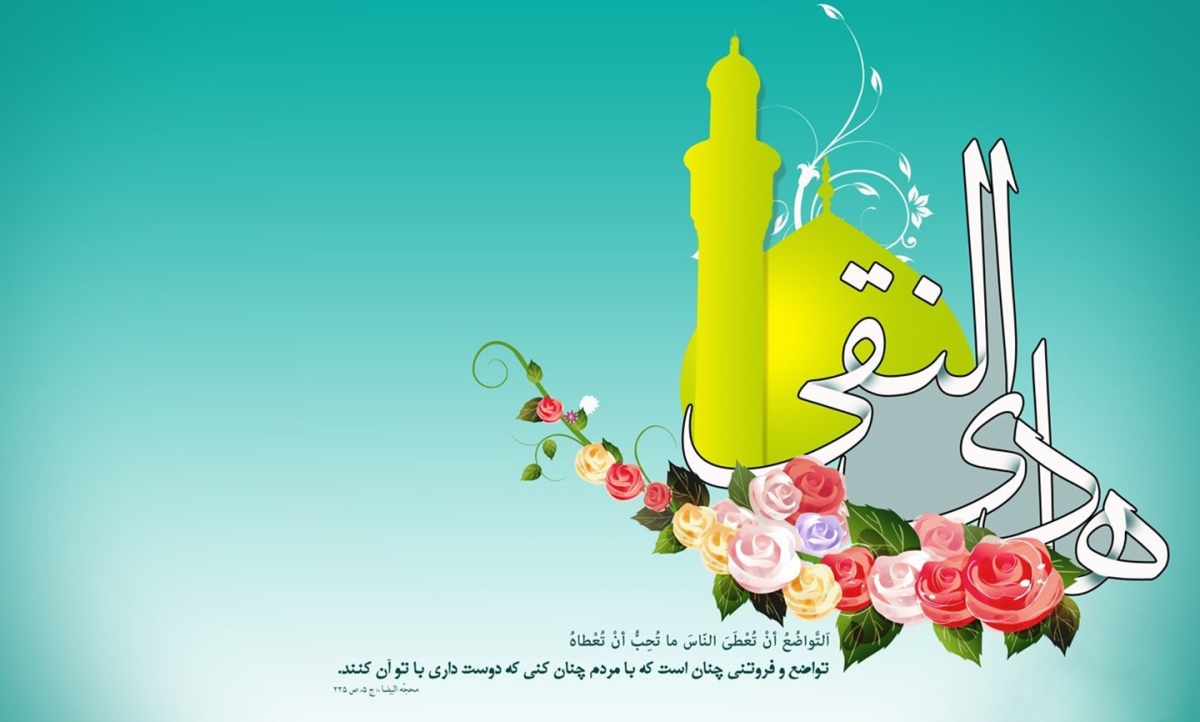AhlulBayt News Agency (ABNA): Imam Hadi (AS) Who Explained the Islamic Laws of Jurisprudence
﴾Say: I do not ask you any reward for this (conveying of the message) except the affection for (my) relatives﴿. (42:23)
Imam al-Hadi (as) reported from his fathers that: “Ameer al-Mumineen Ali ibn Abi Talib (as) has said that he (as) once heard the Messenger of Allah (peace be upon him and his household) saying: ‘When people shall be resurrected on the day of Judgement, a caller will call me: ‘O Messenger of Allah! Allah has permitted you to reward your lovers and the lovers of your progeny who have followed them for your sake; and opposed their enemies for your sake.
You can reward them as you like’. I shall say: ‘My Lord! Paradise! Put them in whatever part of it You like. This is the praised estate, which You have promised’.” (Bihar al-Anwaar)
It is also reported from our 10th Imam (as) that the Holy Prophet (peace be upon him and his household) has said, “On the day of resurrection, I shall intercede for four (4) types of people: The lover of my progeny; One who follows them; One who shows enmity to their enemies and one who helps them and relieves them of distresses”. (Aamaali of Shaykh al-Toosi) Simple Lifestyle
The basic rule in Islam is that: Anyone who struggles to sustain himself and his family in lawful manner – then whatever the job or work may be – such a person is worthy in the sight of Allah (SWT). If we study the life of our 10th Imam (as), we will notice that he (as) led an extremely simple life and did not hesitate to work laboriously to sustain his family.
Historians write that he worked in his farm. Ali ibn Hamza once saw him work in a farm while his feet were soaked with sweat. So he said, “Maula! May my life be sacrificed for your sake! Where are the men (to help you)”. Imam (as) responded, “O Ali! One, who was better than me and my father, worked with spade in his farm”. Ali ibn Hamza asked, “Who was he?” Imam (as) replied, “The Messenger of Allah (saww); Ameer al-Mumineen (as); and all my fathers worked with their hands. It was the work of prophets, apostles and good saints…” (Man Laa Yahdhuruhul-Faqeeh)
Contribution to Fiqh
Our 10th Imam (as) is also known to be one of the many Imams (as) to explain the Islamic Laws of Jurisprudence.
In his days, many people used to refer to him in matters of Shari’ah and there are numerous such incidents in the history. For instance:
A person came to Imam al-Hadi (as) and asked, “Does a prayer become invalid if someone passes ahead of a person in his Salaat?” Imam (as) said, “No, the prayer is not so simply invalidated. It is accepted from its keeper”. (Wasail al-Shia’h)
Another example is of prostrating on the earth. It is wajib to prostrate on the earth or what is grown from earth. It is not permitted to prostrate on: Any eatable; Wearable or glass.
A companion of Imam al-Hadi (as) once wrote to him asking if it was permissible to prostrate on glass. After sending the letter, he regretted because he felt it was allowed to prostrate on glass since it was grown from the earth. Imam (as) responded, “Do not offer prayer on glass even if you feel that it is grown from the earth because it is from salt and sand, which are changed”. (Wasail al-Shia’h)
/129
source : al-Maaref
Monday
26 July 2021
4:48:54 AM
1163309

‘When people shall be resurrected on the day of Judgement, a caller will call me: ‘O Messenger of Allah! Allah has permitted you to reward your lovers and the lovers of your progeny who have followed them for your sake; and opposed their enemies for your sake.
